In the summer of 1861 the Confederate Army was massing near Manassas Junction in Northern Virginia. The family of Wilmer McLean had been watching the build up warily from their house nearby. One day, in the middle of June, General Beauregard was inspecting his lines near the house when a Federal gun fired and the shell actually dropped down the chimney of the McLean house and exploded in a big pot of stew. Apparently this was a portent of things to come for the McLeans. Surviving the battle, Wilmer moved his family to a more peaceful area in a village to the West of Richmond. All went well until April of 1865. His house, again, was surrounded by the Confederate Army. Wilmer was given the task of finding a place for Generals Lee and Grant to meet. The first choice was dismissed and the Confederate officer asked about a red brick house nearby. Of course, this house was preferred and Wilmer McLean was going to have the privilege of hosting the surrender of Lee's Army to Grant at Appomattox Courthouse. He is supposed to have said: "The War began in my front yard and ended in my parlor.".
2) THE UNKNOWN SOLDIER
Many foreigners served on both sides during the Civil War. One of the more unusual cases was a man serving with the Army of Northern Virginia who was thought to be German. Nobody could understand a word he said and he kept to himself. During the winter months, he would make a shelter out of leaves and brush. He camped alone and lived like a hermit. He served throughout the war in this manner and not one person knew who he was or ever understood any word that was uttered by him.
3) DEADLY COAL
On November 27, 1864 a crewman on the Union Ship Greyhound, Gen. Benjamin Butler's headquarters ship, is shoveling coal into the boiler and, all of a sudden, there is an explosion and the ship is in flames. This sinking marked the first success of the deadly coal invented by Confederate General Gabriel Rains. The "coal" was actually a bomb that looked very much like a lump of coal. As a direct result, trying to prevent anymore incidents of this type, the Union Navy was required to post guards over all their coal supplies. Its inventor also made land mines for the defence of Richmond. Gabriel Rains and his brother, George, were instrumental in keeping the Confederacy supplied with explosives and gunpowder. Known as the "Bomb Brothers", they made many innovations, and due to their singular genius, kept the South supplied with ammunition, explosives, mines, gunpowder, torpedoes, etc. for the duration of the war.
4) GUESS WHO'S NOT INVITED TO THANKSGIVING DINNER
The Civil War caused many family problems with fathers, brothers, sons, cousins, nephews, and even women aligning with either the North or the South. The famous Southern General J.E.B. Stuart's family was a prime example. Stuart's father-in-law was fellow Virginian, Union General Philip St. George Cooke. Stuart was so incensed about the situation that he renamed his son James Stuart, Jr. from his birth name of Philip St. George Cooke Stuart. Union General George Thomas was a Virginian who became one of the most able generals in the Union Army. Nearly 10,000 people showed up for his funeral in New York five years after the war and not one of them was a family member. As far as they were concerned, he died in 1861.
5) FUTURE FAME
There were many people, both combatants and bystanders, who went on to great fame after the Civil War. There was a 20 year old member of an Arkansas regiment who used the name Henry Stanley (his real name was John Rowlands) that went on after the war to lead an expedition to Africa that discovered Dr. Livingston. His famous line was: "Dr. Livingston, I presume.". Jesse James, brother Frank, Cole Younger, and brother James, were part of Quantrill's Raiders during the Civil War who later gained fame as famous train and bank robbers. A woman boarded a blockade-runner off the North Carolina coast in 1863 to visit her artist son in England. She was Anna Whistler, who became famous in the painting "Whistler's Mother". Union General Abner Doubleday has been reputed to have invented the game of baseball. Among the many people to witness the funeral procession of Abraham Lincoln in New York City was a 6 year old Theodore Roosevelt, future President, and his younger brother, Elliott, future father of Eleanor Roosevelt. Eight year old future President, Woodrow Wilson, witnessed Jefferson Davis ride by in a carriage in Atlanta, Georgia in 1865 on his way to a Federal prison. Another Union General to gain greater fame after the war, was Lew Wallace, who wrote the great book Ben Hur: A Tale of the Christ.

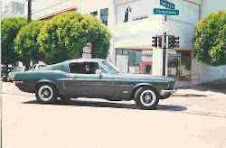

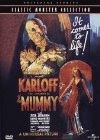



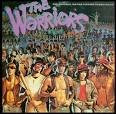

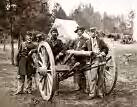
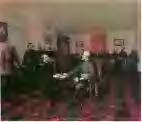


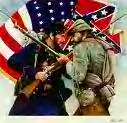



No comments:
Post a Comment